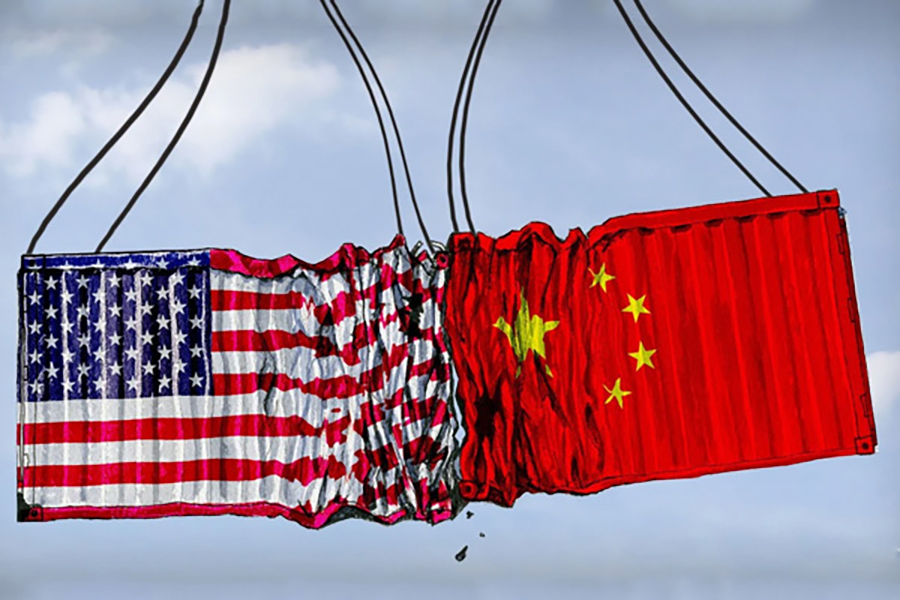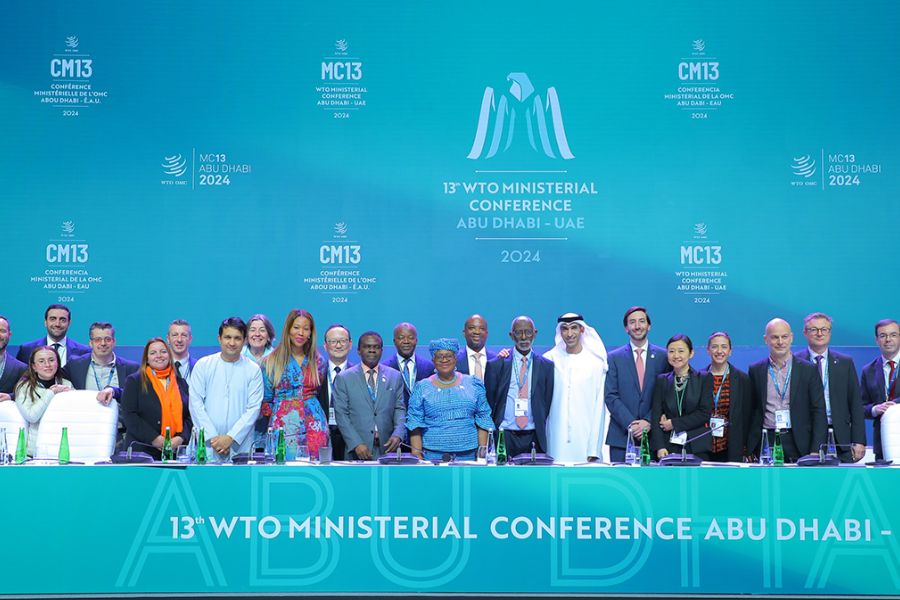Trade policy vision & strategy in a dynamic global landscape
The Plenary Session at India Business and Trade Conclave 2023 featured an engaging and informative panel discussion on global policy scenarios, geopolitical trends and how India needs to address them in its march towards a US$ 2 trillion export economy.
- A prominent fallout of the pandemic has been the focus of a number of nations like Japan, EU, UK, US, South Korea, India, etc on having a China+1 strategy.
- Besides the risk mitigation aspect, this is also due to factors like trade tensions, rising labour costs in China, concerns on IP rights and even geopolitical concerns.
- India is at a unique vantage point to benefit from this situation, being the only country with comparable capabilities to achieve manufacturing scale, with a huge pool of labour, remarkable business ecosystem and a highly lucrative potential market.
- However, it also has to contend with increasing protectionism, rising NTAs as well as newer and more unpredictable policy approaches.
- The prime focus of the session was to decode a sustainable future roadmap for India amidst this evolving scenario.

The 2019 pandemic and geopolitical insecurities exposed vulnerabilities in global supply chains, and countries across the board realised the disadvantages of relying on one source market (namely China). Policy approaches since then have focused on strengthening supply chain resilience and diversification, while adjusting to present constraints and challenges.
A prominent fallout has been the focus of a number of nations like Japan, EU, UK, US, South Korea, India, etc on having a China+1 strategy. Besides the risk mitigation aspect, this is also due to factors like trade tensions, rising labour costs in China, concerns on IP rights and even geopolitical concerns. India is at a unique vantage point to benefit from this situation, being the only country with comparable capabilities to achieve manufacturing scale, with a huge pool of labour, remarkable business ecosystem and a highly lucrative potential market.
The Government of India has also been working relentlessly towards various initiatives to capitalise on this opportunity, and we are also seeing positive results. But at the same time, we must be aware that protectionist tendencies have risen sharply in the past few years across the world. Even as we positively engage with our trade partners and support the ongoing diversification of supply chains, we need to be wary of such tendencies that may harm the genuine interests of our industry.
The Plenary Session at the India Business & Trade Conclave 2023 on the topic ‘Trade vision and strategies in a dynamic global landscape’ discussed these challenges at length, along with how India needs to address them, while deepening relations with its key trade partners.

The panelists for the session were Guests of Honour Sanjeet Singh, Senior Adviser, NITI Aayog and Md. Noor Rahman Sheikh, JS (ED), Ministry of External Affairs along with Dr Pritam Banerjee, Professor & Head, Centre for WTO Studies and Member, Committee for Advanced Trade Research, TPCI. The session was moderated by Anuradha RV, Partner, Clarus Law Associates.
Md Noor Rahman Sheikh spoke on the growing synergy between diplomacy and trade, stating, “With the PM’s focus on 3Ts – Trade, Tourism, Technology, the approach now is very consultative and holistic. Commercial missions are far more engaged and aware of the opportunities available in India, whether you talk about investments coming into India, or export opportunities in those countries.” He assured the audience that while the focus was more on political diplomacy in the past, the best people are now working in commercial wings in critical areas like networking, market intelligence studies, etc. He expressed confidence that this is only expected to grow in the future.

Sanjeet Singh highlighted that the PM’s vision of a ‘Viksit Bharat’ (or Developed India) implies that the country has to grow rapidly and sustainably, and growth needs to reach every citizen. Exports will be a critical part of the journey for India to become “viksit” and register rapid & sustainable growth.
Mr Singh noted how, in earlier trade agreements in 2000’s, countries like Japan, Korea and ASEAN were the major partners, but industry did not really benefit from them and trade deficit became more adverse. But by the end of 2020’s, India has started engaging with major trading partners like UAE and Australia and further with other developed countries including UK, EU and Canada. The strength for this comes from India’s own domestic industry which is standing up to competition.
During his remarks, Dr Pritam Banerjee asserted that the COVID-19 pandemic has accelerated the evolution of global value chains, creating both risks and opportunities for India. However, we must also address the issues pertaining to new kinds of non-tariff barriers. He felt that India should have a two-fold approach to tackle these:
-
- Pursuing more Free Trade Agreements (FTAs) where we can benefit from marginal gains through tariff reductions. Margins of 2-3% can be significant, as they attract inward investments that bring substantial benefits. However, it is crucial to assess how to effectively utilize FTAs and whether our domestic institutions are prepared for them.
- Fostering domestic competitiveness by implementing policies that facilitate business, including measures like market access. It is essential to invest in various areas and adopt a sector-specific approach. Different sectors have different characteristics, and discussions need to be tailored accordingly. Engaging in specific consultations with industry stakeholders based on their operational strategies is crucial.

To tackle the policy challenges, Dr Pritam Banerjee said that India needs to broaden its vision and focus on a 5Cs approach:
- Coalitions: India should be actively driving dialogues in order to fast track fruitful engagements
- Counter: India should be prepared with planned agendas and actions for the proposals for coalitions and prepare the counter proposals based on our principles for the negotiating table.
- Communicate: Telling the world about our needs and visions and growing together will help us to fulfill the vested interests of both the countries.
- Collaboration: Accessing the practicality of the regulatory barriers and devising a holistic strategy of sustainability.
- Competence: Strengthening our own domestic industries and integrating them into global supply chains.
Sanjeet Singh also cautioned that FTAs with developed countries come with their own challenges. He felt that India has to build a comprehensive approach to tackle these challenges by intense industry consultations to take feedback. Moreover, he opined that while India can protect its critical sectors, it cannot practically afford to build walls and protect every sector. India should focus on removing different and new barriers coming up and expanding market access facilitated by more FTAs. The G20 Presidency is crucial not just from a diplomatic perspective, but to also ensure our supply chains and trade are secured, Mr Singh stated.













Leave a comment